Polish Beverages: Basic Overview
Common Ingredients
Common Preparing Methods
Key Taste
Drinking Etiquette
Culinary Festivals
Influence and Fusion
Classifications of Polish Beverages
-
Alcoholic
Polish alcoholic beverages are deeply rooted in the country’s traditions and culture.
Distilled spirits, particularly vodka, are a hallmark of Polish cuisine, with grain and potatoes as primary bases.
Polish beers and wines also contribute to the diversity, ranging from light lagers to full-bodied reds, catering to varied palates.
-
Non-alcoholic
The non-alcoholic drinks of Poland offer a refreshing and wholesome variety, from fermented milk drinks to fruit-based kompots.
The culture of tea and coffee drinking is also prevalent, with a preference for herbal and fruit teas.
These beverages, ranging from sweet and fruity to tangy and fermented, are integral to daily life.
Polish beverages are drinks belonging to Poland, a country in Central Europe. The beverage scene in the country offers a mix of alcoholic and non-alcoholic options.
Alcoholic drinks are central to Polish traditions, with vodka and beer being the most celebrated. On the non-alcoholic side, Poles favor natural and traditionally prepared drinks like kompot, coffee, and tea.
Polish beverages cater to a range of flavors, from strong spirits designed to warm during winter to light, sweet options ideal for summer.
Preparation methods for these drinks often involve fermentation and distillation, particularly for alcoholic drinks. Preparing non-alcoholic beverages like kompot and herbal teas is simpler, generally involving boiling or steeping ingredients to extract flavors.
Ready to dive into Poland’s favorite drinks and how they’re enjoyed? This guide has you covered, from well-loved local beverages to insights into Poland’s traditional drink scene, global popularity, drinking laws, traditional Polish toast expressions, and top drink companies.
Plus, get the scoop on the best food and drink combos. So, why wait? Let’s get started!
25 Popular Polish Beverages with Filters
Check out this list of the top 25 drinks from Poland, organized by how popular they are. It comes with cool search tools so you can easily find drinks based on what they’re made of, how they taste, or how they’re prepared.
Whether you’re looking for traditional drinks, national favorites, or something you’d find on the street, this guide has something for everyone.
Vodka stands out as Poland’s pride. Seen as the national drink, it varies from plain to flavored, with the world enjoying its taste, too.
While Poland might not be famous for its street drinks, beverages like oranżada, a sweet, fizzy drink, and kvass, a fermented rye bread drink, mirror the casual and refreshing options.
These drinks, often associated with childhood memories, are perfect for on-the-go refreshments.
Vodka
- Alcoholic
- National
- Traditional
Vodka, or wódka, is a distilled beverage, a significant part of Polish culture, and often considered a national drink. This clear spirit can be made from various ingredients, but grains and potatoes are the most common in Poland.
Vodka comes in many forms, with famous varieties including Żubrówka, known for its unique bison grass flavor, and Wyborowa, which is appreciated globally.
Its taste ranges from pure and neutral to flavored versions, including herbs, fruits, and spices. Vodka is central to many Polish celebrations, particularly weddings and festive holidays like Christmas and Easter.
While it’s a staple in Poland, vodka is also immensely popular worldwide, including in the UK, and has a significant presence in Europe, America, and beyond.
Polish Beer
- Alcoholic
- Street Beverages
- Traditional
Polish Beer, known as Piwo, is a traditional alcoholic drink with a rich history in Poland. It comes in various types, including lagers, ales, and stouts, with popular variations like Jasne (pale lager) and Porter Polski (Polish porter).
Polish beers generally offer a wide range of tastes, from light and crisp to dark and full-bodied, catering to different preferences. Beer is often enjoyed during numerous social occasions and is particularly favored during sporting events and summer barbecues.
Although most celebrated within Poland, Polish beer has found admirers across the UK and other parts of the world.
Grzaniec
- Alcoholic
- Street Beverages
- Traditional
Grzaniec, the Polish name for mulled wine, is a warm, spiced wine drink. It’s a traditional beverage, especially popular during the cold months, and a staple at winter festivities. Grzaniec is often enjoyed at Christmas markets and during holiday gatherings.
This cozy drink is made by heating red wine with various spices, such as cinnamon and cloves, and sometimes sweetened with sugar or honey. Its taste is rich and warming, a perfect antidote to chilly weather.
While mulled wine is celebrated in Poland, it’s also a winter favorite in many other countries across Europe, including parts of the UK
Polish Mead
- Alcoholic
- Traditional
Polish mead, known as “Miód Pitny”, is a traditional alcoholic drink made by fermenting honey with water. It’s one of the oldest known alcoholic beverages and holds a special place in Polish history and culture.
Polish mead comes in various strengths and flavors, with some well-known types being Półtorak (very sweet and strong), Dwójniak (sweet), Trójniak (semi-sweet), and Czwórniak (dry). The taste of mead can range from very sweet to more balanced and mild, depending on the type.
Mead is often associated with ancient celebrations and rituals but continues to be enjoyed at festivals, weddings, and other significant occasions in modern times.
Its fame spreads across Europe, with a growing interest in other regions, including North America and parts of the UK.
Żubrówka
- Alcoholic
- Traditional
Żubrówka, also known as bison grass vodka, is a flavored vodka originating from Poland. It’s recognized as a traditional Polish spirit, distinguished by its bison grass infusion, giving it a unique flavor and slight green tint.
Żubrówka is often enjoyed neat, on the rocks, or as part of cocktails, with apple juice being a popular mixer, creating a drink known as a “Tatanka” or “Szarlotka” (Apple Pie).
The taste of Żubrówka is herbal and slightly sweet, with a hint of vanilla and coconut, attributed to the bison grass. Żubrówka has gained international acclaim, including popularity in the UK.
Chopin
- Alcoholic
- Traditional
Chopin vodka is a high-quality Polish vodka, named after the famous Polish composer Frédéric Chopin. It’s considered a premium national spirit, made from select Polish ingredients, with separate variants based on potatoes, rye, and wheat.
The potato version is notably smooth and full-bodied, the rye variant is crisp and lively, while the wheat version is soft and light. To appreciate its quality and flavor nuances, Chopin vodka is typically enjoyed neat or in minimalist cocktails.
Its acclaim crosses Polish borders, with a strong presence in the UK.
Krupnik
- Alcoholic
- Traditional
Krupnik is a traditional Polish liqueur that combines honey with a variety of spices. This warm, sweet beverage is often homemade and can vary in taste depending on the spices used, such as vanilla, nutmeg, or cloves.
It can be enjoyed both hot and cold and is especially popular in winter. It is also a customary drink during the holiday season, particularly Christmas.
Krupnik has also found fans in various parts of Europe and among communities in the UK that cherish Polish cuisine.
Nalewka
- Alcoholic
- Traditional
Nalewka is a Polish homemade liqueur celebrated for its infusion of fruits, herbs, and spices in alcohol, usually vodka or neutral spirits. The process of making Nalewka is considered an art, with recipes passed down through generations.
It features a wide range of flavors, from sweet and fruity to spicy and herbal, depending on the ingredients used. Some famous variations include Wiśniówka (cherry), Malinówka (raspberry), and Orzechówka (walnut).
Nalewka is a traditional part of Polish celebrations, often served at weddings, family gatherings, and important holidays. Its popularity extends beyond Poland, with enthusiasts across Europe and parts of the UK.
Kompot
- Non-Alcoholic
- Traditional
Kompot, or compote, is a non-alcoholic drink in Polish tradition, made by boiling fresh fruits in water with sugar and sometimes spices, to create a light, refreshing beverage. It’s a versatile drink, with variations depending on the season and available fruits.
Summer versions include berries or cherries, while autumn kompot might feature apples or plums. The taste of kompot is naturally sweet and fruity, making it a popular choice for meals at any time of the year.
Kompot is especially prominent during the Christmas feast, where a dried fruit version is commonly served.
Polish Wine
- Alcoholic
- Traditional
Polish wine, also recognized locally as Polskie wino, is a type of alcoholic beverage that stands as a traditional part of Poland’s culinary heritage.
This beverage encompasses a variety of types, with some of the more famous variations including those made from Rondo, Regent, and Solaris grapes, which are well-adapted to the Polish environment.
The taste of Polish wine can range widely from crisp and refreshing whites to full-bodied and aromatic reds.
Polish wine is enjoyed during major holidays and family gatherings, similar to other cultures’ use of wine to mark special occasions.
Kefir
- Non-Alcoholic
- Traditional
Kefir is a fermented milk drink that, while not originating from Poland, has been adopted into Polish cuisine as a traditional beverage. It’s made by adding kefir grains to milk, which initiates fermentation, resulting in a tangy, slightly fizzy drink rich in probiotics.
Kefir can be enjoyed plain or flavored with fruits and sweeteners, offering a range of tastes from sour to mildly sweet. It’s a health drink valued for its digestive benefits and nutritional content.
Kefir is popular across Eastern Europe, including Poland, and has gained international popularity, particularly among health-conscious consumers worldwide, including in the UK and the US.
Szarlotka
- Alcoholic
- Traditional
Szarlotka, not to be confused with the apple pie of the same name, is a famous cocktail in Poland. It’s a simple mix of Żubrówka (bison grass vodka) and apple juice. The taste is a sweet and slightly spicy combination, thanks to the distinctive flavor of the bison grass in the vodka.
Szarlotka is enjoyed throughout the year but finds special favor during gatherings and social events. While it is particularly popular in Poland, its fame has spread to bars and Polish-themed events worldwide, including parts of the UK.
Moonshine
- Alcoholic
- Traditional
Moonshine, referred to in Poland as “bimber,” is a homemade distilled spirit. Bimber is traditional and has a long history in Polish countryside culture, where it was often produced as a way to avoid taxes on alcohol.
The taste and quality of bimber can vary widely, depending on the ingredients and the distiller’s skill, ranging from very smooth and clean to harsh and strong.
Grodziskie
- Alcoholic
- Street Beverages
- Traditional
Grodziskie is a type of smoked wheat beer originating from Poland, specifically from Grodzisk Wielkopolski. It’s known for its light, refreshing nature and a distinctive smoky flavor derived from smoked wheat malt.
Grodziskie is relatively low in alcohol, making it a pleasant drink for various occasions.
Kvass
- Non-Alcoholic
- Street Beverages
- Traditional
Kvass, originating from Eastern Europe and Russia, has found its place in Polish cuisine as a time-honored fermented beverage. It is made by fermenting rye bread, which results in a slightly sweet, tangy, and effervescent drink, low in alcohol and often flavored with fruits or herbs.
Kvass is enjoyed for its refreshing qualities and is often associated with summer. It’s part of the culinary landscape in Poland, especially among communities valuing traditional and natural foods.
While kvass is more widely consumed in its countries of origin, it enjoys niche popularity in Poland and among Eastern European communities in the UK and other regions.
Podpiwek
- Non-Alcoholic
- Street Beverages
- Traditional
Podpiwek is a traditional Polish non-alcoholic beverage made by fermenting grains and sometimes flavored with herbs like hops. It’s similar to Kvass but has its unique character and method of preparation.
Podpiwek is renowned for its dark color and slightly sweet, mildly fermented flavor. It’s a refreshing drink, often enjoyed as a healthier alternative to soft drinks.
Traditionally, podpiwek was homemade, but it has recently started appearing in stores, reflecting a growing interest in classical and natural beverages.
Piołunówka
- Alcoholic
- Traditional
Piołunówka is a type of Polish herbal vodka celebrated for its bitter taste, primarily due to the inclusion of wormwood (piołun in Polish) among its ingredients. This spirit is a traditional drink, valued for its flavor and supposed medicinal properties.
Piołunówka is often enjoyed as a digestive aid after meals. Its strong, distinctive taste sets it apart from other alcoholic beverages in Poland.
Goldwasser
- Alcoholic
- Traditional
Goldwasser, originating in Gdańsk, Poland, is a unique herbal liqueur known for its characteristic flakes of 22 or 23-karat gold suspended in the drink.
This spirit, which translates to “Gold Water” in German, boasts a complex flavor profile that includes a blend of herbs and spices, giving it a sweet, somewhat spicy taste.
Goldwasser is considered a traditional Polish beverage, with a history dating back to the 16th century. It’s enjoyed by many during celebrations and is often given as a gift due to its luxurious appearance.
Oranżada
- Non-Alcoholic
- Street Beverages
- Traditional
Oranżada is a sweet, carbonated soft drink part of Polish cuisine, often associated with childhood memories for many Poles. It’s similar to what many would recognize as orange soda, but with its distinct flavor.
Traditionally, oranżada was sold in powder or syrup to be mixed with water. Over the years, ready-to-drink versions have become more common.
Its taste is primarily sweet and fruity, with the most classic version being orange-flavored, though other variations like lemon and raspberry exist.
Oranżada is particularly popular at summer festivals and a nostalgic beverage for many, without specific ties to major holidays or celebrations.
Buttermilk
- Non-Alcoholic
- Traditional
Buttermilk, in the context of Polish cuisine, refers to a fermented dairy product similar to what many cultures enjoy. It’s the liquid left after churning butter out of cream and is known for its slightly sour taste and thick consistency.
In Poland, buttermilk is used as a beverage and an ingredient in cooking and baking, adding a rich, tangy flavor to dishes. It’s a traditional food item, appreciated for its health benefits and versatility.
Buttermilk enjoys popularity in various forms worldwide, including in the UK, where it’s used in similar culinary contexts.
Starka
- Alcoholic
- Traditional
Starka is a traditional Polish aged vodka, known for its unique production process that involves aging the spirit in oak barrels, which gives it a distinctive flavor and color reminiscent of whiskey. This aging process can last from a few years to several decades.
Its taste is rich and complex, with fruit, spices, and oak notes. Starka is sometimes enjoyed during celebrations like weddings and anniversaries.
Śliwowica
- Alcoholic
- Traditional
Śliwowica is a potent Polish plum brandy with high alcohol content and deep, fruity flavor. It’s a type of moonshine traditionally distilled in small batches, particularly in the southern regions of Poland.
Śliwowica’s reputation is built on its homemade roots and the craftsmanship that goes into producing it. The drink is often made from local plum varieties, which contribute to its robust and distinct taste, typically enjoyed neat.
Polish Tea
- Non-Alcoholic
- Traditional
Polish tea, traditionally known as “herbata,” is a staple beverage in Poland, enjoyed at any time of the day. Famous types of tea enjoyed in Poland include herbal teas, with ingredients like mint, linden, and chamomile being popular choices.
Fruit teas are also beloved, especially those made from berries such as raspberries or blackcurrants. These teas are appreciated for their warming and comforting qualities, especially during Poland’s cold winters.
Tea is especially popular during family gatherings and is a common offering to guests in this country.
Polish Coffee
- Non-Alcoholic
- Traditional
Polish coffee, known locally as “kawa,” reflects a strong coffee culture with preferences leaning towards finely ground coffee.
Traditionally, this involves brewing it directly in a cup or pot with boiling water, sometimes referred to as “Turkish Coffee.” However, modern practices also include using various coffee makers and espresso machines.
Polish coffee is typically enjoyed strongly and often accompanied by a sweetener or milk. While no famous variations are exclusively Polish, enjoying a leisurely coffee break, particularly in the afternoon, is a cherished routine.
Żołądkowa Gorzka
- Alcoholic
- Traditional
Żołądkowa Gorzka is a traditional Polish herbal vodka known for its distinctive bitter-sweet taste and amber color. The name literally translates to “Bitter Stomach,” indicating its original use as a digestive aid.
This drink is infused with a variety of herbs, spices, and citrus peel, giving it a unique flavor profile that has made it a beloved spirit in Poland.
Żołądkowa Gorzka is enjoyed in several variations, including a classic version and others flavored with mint, honey, or cherry. It’s a standard fixture in celebrations and social gatherings.
What Makes Up Polish Drinking Laws?
Poland has a set of rules around drinking alcohol that helps balance its traditional culture with keeping people safe. Here’s a simple guide to how it works:
Moving on, let’s uncover cultural phrases Polish people traditionally say when raising a glass.
What Do Polish People Say When Drinking?
Now that you know what to drink in Poland, it is time to learn how to drink like a true local. The Poles have many unique ways to toast their drinks, whether it’s serious or silly. Here are some of the most common ones:
Na Zdrowie! – To Health!
Similar to “Cheers!” in English, this is undoubtedly the most popular toast in this country. When you have the chance to drink with the Polish locals, this should be your go-to phrase since it is versatile, well-known, and easy to remember.
Za Nas! – To Us!
Here’s another short and simple way to say cheer in Polish. The locals love to enjoy their alcohol in groups rather than alone, so they often use this phrase to show affection towards their drinking buddies.
Sto Lat! – One Hundred Years!
Locals often use this praise at weddings and birthdays. The Happy Birthday song in Polish also mentions this phrase.
Czowiek Nie Wielbd, Pi Musi! – Man Is Not A Camel, He Must Drink!
This funny phrase is often used as an excuse to drink more alcohol. But it is true; humans are not camels, so why must you let yourself go thirsty when there are hundreds of delicious drink options in Poland?
These regulations also provide an environment for Polish beverage companies to thrive and become well-known locally and internationally.
What Are the Most Famous Polish Beverage Companies?
Poland has a rich history in beverage production, boasting a variety of companies renowned for their quality and innovation. Among the most famous Polish beverage companies are:
Their success opens a culinary journey for those eager to match these beloved drinks with Polish dishes, enhancing the dining experience.
How To Pair Beverages with Dishes in Poland?
Here’s a guide on how to pair various types of Polish dishes with beverages:
Remember, the best pairings are the ones that suit your taste, so feel free to experiment with different Polish delicacies to find your perfect match.
If you like this article, give it a thumbs up and share it with all your friends and loved ones. And if you have any questions about Polish drinks, foods, and culture, feel free to comment in the section below. Thank you all for your support. Bye for now!






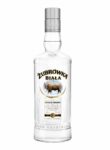
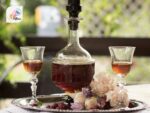
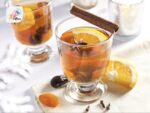





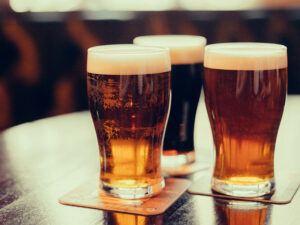
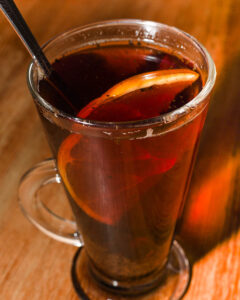
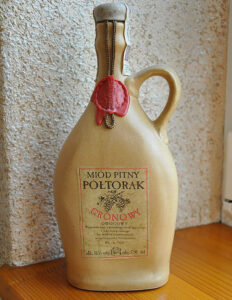
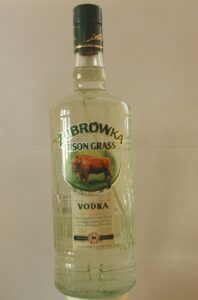

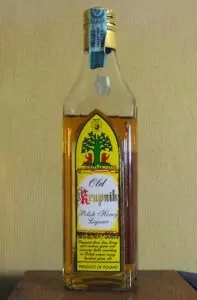
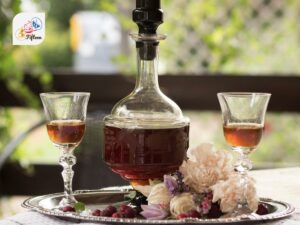
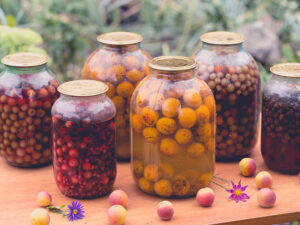




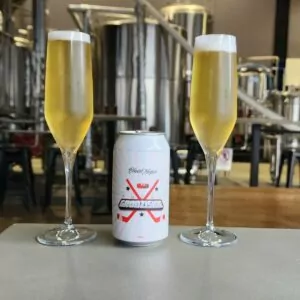
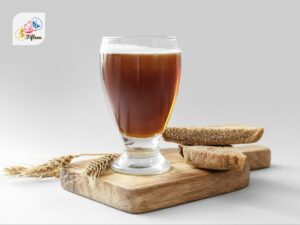

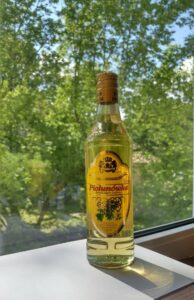
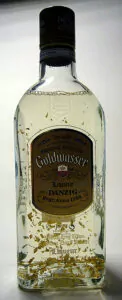
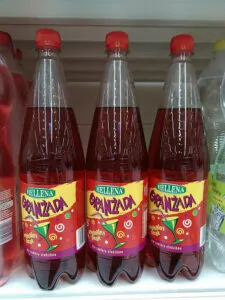
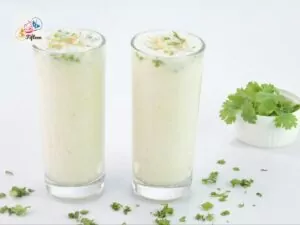
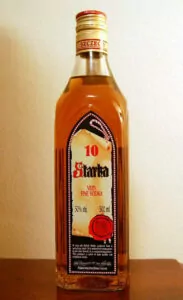
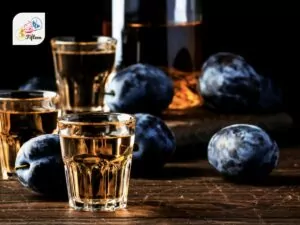
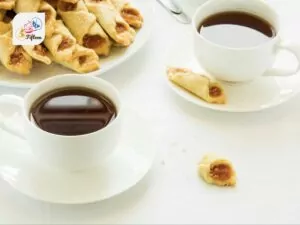



Jamie Scott
Editor in Chief, Senior Content Writer
Expertise
Home Cooking, Meal Planning, Recipe Development, Baking and Pastry, Food Editor, Cooking-video Maker, Western Food Evaluation Expert
Education
Le Cordon Bleu College of Culinary Arts
Local Community College, New York, NY
Jamie Scott is a skilled culinary expert and content creator specializing in Western cuisine. With over 15 years in the culinary field and formal training from Le Cordon Bleu, Paris, Jamie deeply understands how to blend nutrition with delicious flavors. His passion for cooking matches his commitment to making healthy eating accessible and enjoyable.
On Fifteen.net, Jamie brings a fresh perspective to classic dishes and beverages, offering readers insightful recipes, cooking tips, and a fresh view on meal planning that emphasizes taste, health, and simplicity.